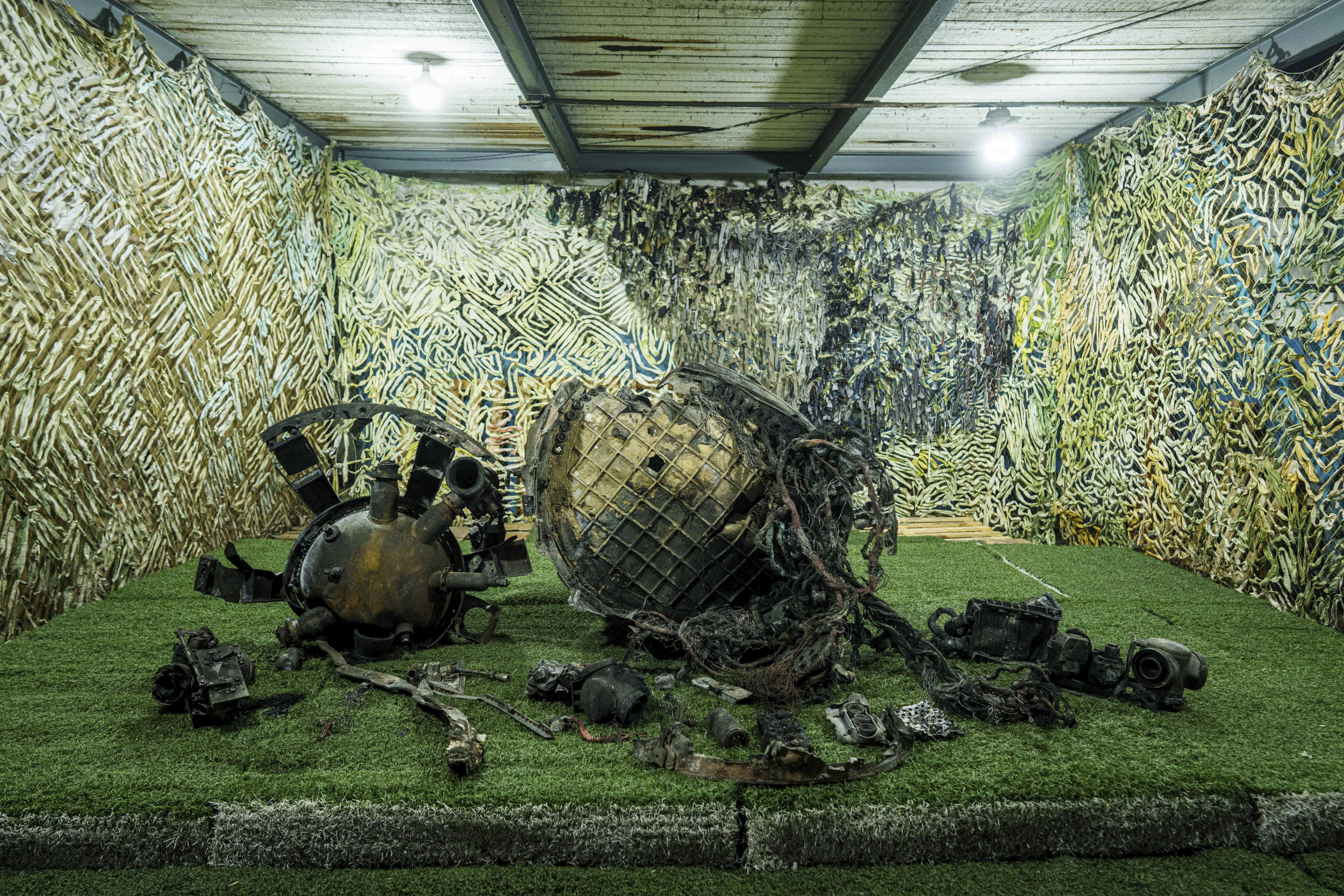"If you do not want to die in the war," the Ukrainian government-backed hotline, "I Want To Live," proclaims in large letters on its homepage, then they are the ones to contact.
Established for Russian soldiers to surrender and get themselves out of Moscow's ranks, the hotline is preparing for North Korean soldiers to reach out for the first time.
The "I Want To Live" project isn't expecting a "massive" wave of messages or calls from North Korean soldiers, but is anticipating a few fighters drafted into front-line clashes to make contact, Vitalii, a spokesperson for the hotline, told Newsweek.
None of the thousands of soldiers sent from North Korea to Russian soil have contacted the project yet, Vitalii said.

South Korean, U.S. and Ukrainian intelligence have indicated that upward of 10,000 North Korean soldiers have been sent to the western Russian region of Kursk to support Moscow's war effort. Ukraine launched an offensive into the region in early August, andstill holds hundreds of square miles of Russian territory.
Pyongyang's fighters are thought to be kitted out in Russian garb and have been taken into the Kremlin's existing military forces.
Russia has not confirmed or denied the presence of North Korean troops in Kursk, but has signed a mutual defense pact with the secretive country's supreme leader, Kim Jong-un. Russian President Vladimir Putin said it was "entirely our own business" how to implement the defense agreement between Moscow and Pyongyang.
North Korea has supplied a significant number of missiles and shipments of munitions to prop up the Kremlin's war effort. A South Korean intelligence official said earlier this week that Russia had provided air-defense equipment and "economic aid in various forms" to North Korea.
U.S. Secretary of Defense Lloyd Austin said on Saturday that he expected to see North Korean soldiers "engaged in combat soon." The State Department confirmed in mid-November that North Korean soldiers were "engaging in combat operations with Russian forces" after undergoing training in how to use drones, artillery, and carry out "basic infantry operations."
Ukraine's Defense Minister, Rustem Umerov, told South Korean media earlier this month that North Korean soldiers had been involved in "small-scale clashes" so far.
The North Korean troops arrived in Russia at a moment when Moscow, like Kyiv, is searching for ways to backfill its military ranks in the face of eye-watering casualty counts. Russia has been steadily advancing in Ukraine's east, but has racked up a high number of casualties in the process, according to numbers coming out of Ukraine.
The "I Want To Live" hotline was quick to launch a social media appeal in Korean more than a month ago. "We appeal to the fighters of the Korean People's Army who were sent to help the Putin regime," the hotline said in a post to messaging app Telegram, using the formal name for North Korea's army.
"You should not die senselessly on foreign soil," the project wrote. "Do not repeat the fate of hundreds of thousands of Russian soldiers who will never return home!"
Those who surrender to Ukrainian forces are promised shelter, hot meals and medical care for those who need it.
"It does not matter how many soldiers Pyongyang sends to help Russia, it does not matter in which direction—Ukrainian prisoner of war camps are ready to accept soldiers of any nationality, religion and ideological views," the hotline said.
Extracting each soldier from the fighting is a unique process, Vitalii said. "There are many factors and variables, so I cannot say exactly how we will do it," he said, "but the main thing is the safety of both the surrendered and our units that are being brought to the territory controlled by Ukraine."
Each fighter who reaches out keeps up a constant link with the hotline, Vitalii said. A bespoke evacuation plan is then devised, taking into account the weather conditions, the landscape and which section of the hundreds of miles of front line the soldier is deployed to, he added.
It's not yet clear whether North Korean fighters will be found along other sections of the front line. Andriy Kovalenko, an official with Ukraine's National Security and Defense Council, said earlier this week that an unspecified number of North Korean soldiers were "transferred to the border areas of the Belgorod region."
Belgorod borders Kursk, sitting across from Ukraine's northeastern Kharkiv region. Newsweek could not independently verify this.
The hotline is "monitoring" where North Korean forces end up, Vitalii said.
"We have now made a video message to the North Korean military and developed leaflets that will be distributed at the front," he added. The project also has specialists who can communicate in Korean, Vitalii said.
There are still big question marks over how well the North Korean soldiers, for whom this will be their first combat experience, will cope with warfare on the front lines in Europe.
Officials and experts have pointed to likely problems with communication, slotting into the command structure of Russia's military, and morale.
Pyongyang's fighters are "conditioned with unwavering loyalty to their leadership and a unique psychological resilience cultivated by the regime," Ji Hyun Park, a North Korean defector, now a senior fellow for human security at the Center for Asia Pacific Strategy, previously told Newsweek.
It is designed to instill a willingness to sacrifice everything for the state, Park said.
"However, this psychological preparation may not translate effectively into practical resilience in the type of active combat scenarios currently seen in Ukraine, where they would face modernized and highly capable opposition in unfamiliar territory," Park added.
A group of North Korean defectors based in the South Korean capital said earlier this month that they handed over written instructions and audio messages for North Korean fighters on how to defect to Ukrainian officials in Seoul.
Jang Se-yul, heading up the group, said Kyiv's military "could secure mass surrender and defection among North Korean soldiers if proactive psychological warfare is mobilized," according to South Korea's Yonhap news agency.
Although the North Koreans may be unfamiliar with Russia's territory and weapons stockpiles, they probably will not need extensive training on the guns, rifles, mortars and other explosives Moscow uses against Ukraine, Ramon Pacheco Pardo, a professor of international relations at King's College London, previously told Newsweek.
At least some of the thousands of fighters are thought to be "Storm Troops," or members of Pyongyang's special operations forces trained for infiltration and assassination. It is impossible to tell how well equipped they are for active conflict.



















 English (US) ·
English (US) ·